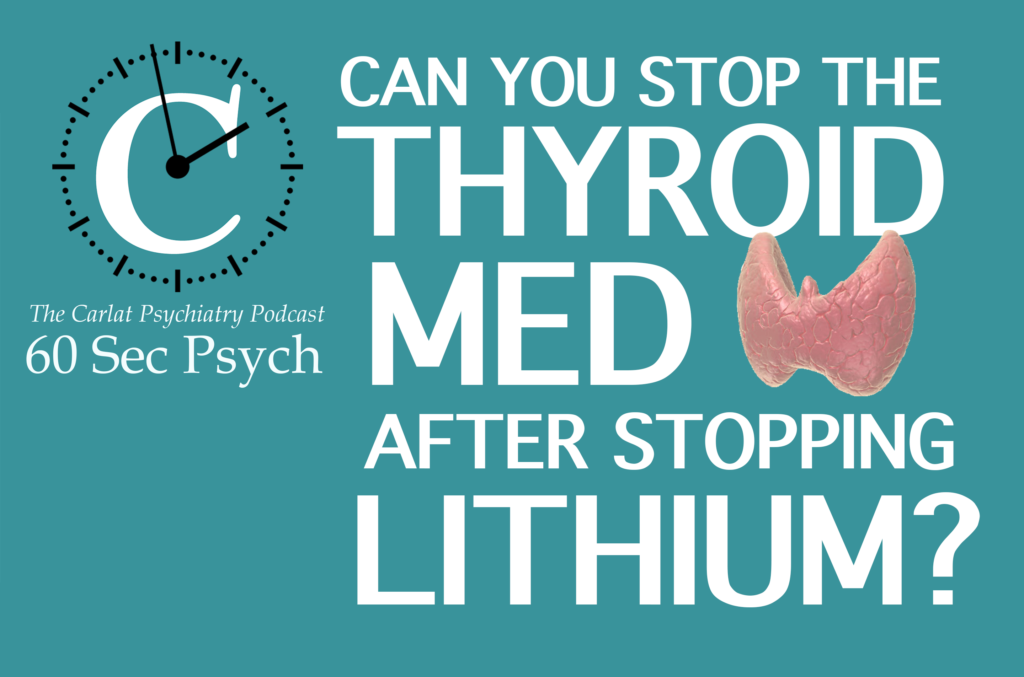Hypothyrodism is fairly common on lithium, affecting about 14-17% of patients. Subclinical hypothyroidism is twice as common, and the risk is greater in the elderly. We know what to do about it ─ start thyroid supplement ─ but what hasn’t been clear is whether we should continue that supplement if lithium is stopped. Lieber I, Ott M, Öhlund L, et al. Lithium-associated hypothyroidism and potential for reversibility after lithium discontinuation: Findings from the LiSIE retrospective cohort study. J Psychopharmacol. 2020;34(3):293‐303. [Link]
Published On: 6/17/20
Duration: 2 minutes, 10 seconds
Transcript:
Hypothyrodism is fairly common on lithium, affecting about 14-17% of patients. Subclinical hypothyroidism is twice as common, and the risk is greater in the elderly. We know what to do about it ─ start thyroid supplement ─ but what hasn’t been clear is whether we should continue that supplement if lithium is stopped.
This retrospective study of 90 patients attempted to gather some preliminary answers. All of the patients had hypothyroidism on lithium and went on to discontinue lithium. About half – 41% - stopped the thyroid supplement after the lithium was stopped, and only 17% of those needed to go back on lithium.
Now, this study is not controlled in any way, and we don’t know if the need to resume thyroid would be greater if all of the patients attempted to stop it, but it does give us some basic direction. Most of the time, lithium-induced hypothyroidism is reversible, and the thyroid supplement can be stopped. However, there’s at least a 17% chance that the hypothyroidism will come back, so follow up labs are needed. Keep in mind that bipolar disorder itself is associated with hypothyroidism, as is treatment with carbamazepine and possibly valproate/depakote.
Got feedback? Take the podcast survey.


_-The-Breakthrough-Antipsychotic-That-Could-Change-Everything.jpg?1729528747)



